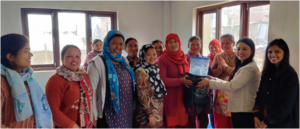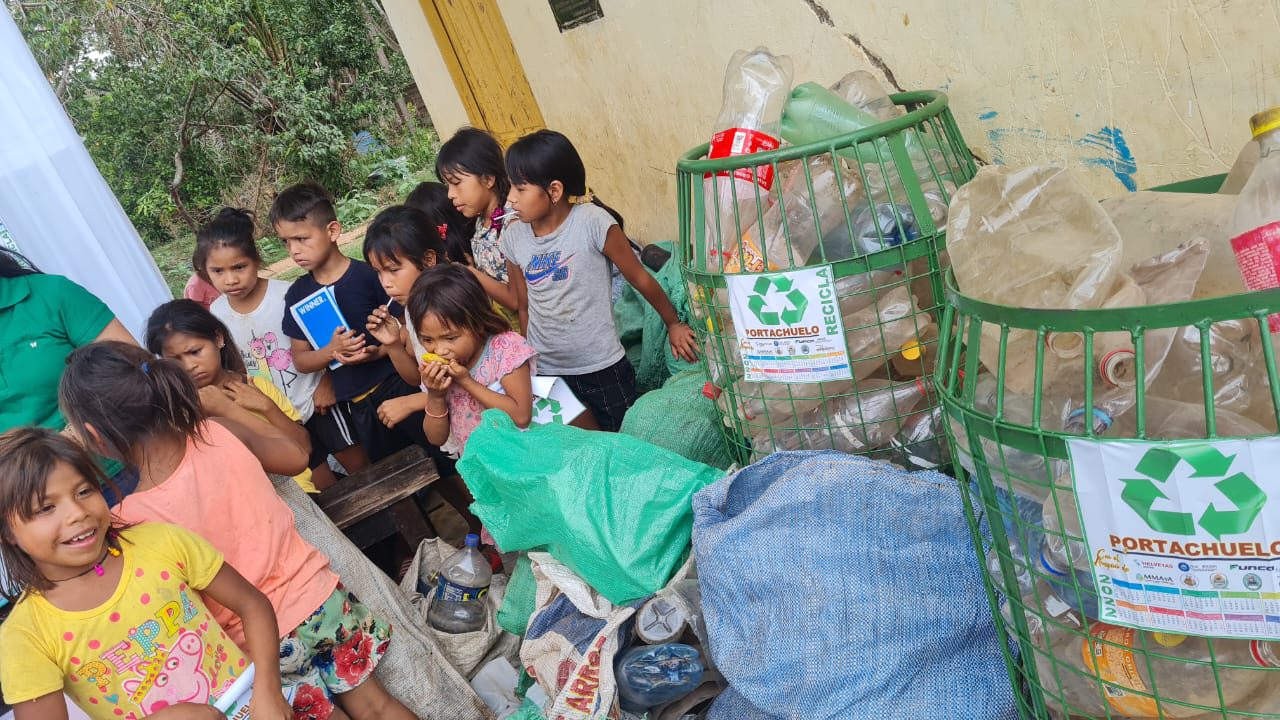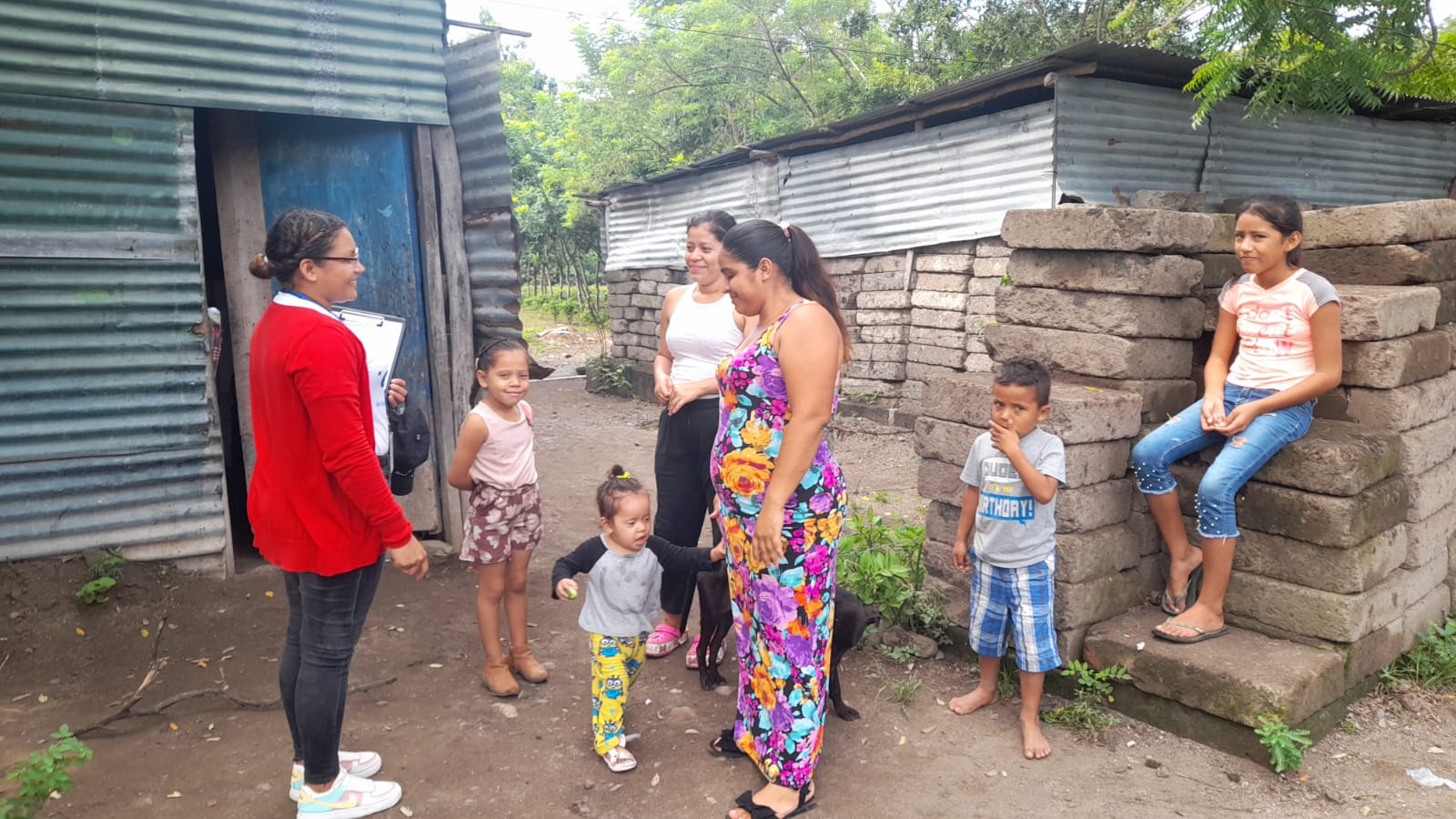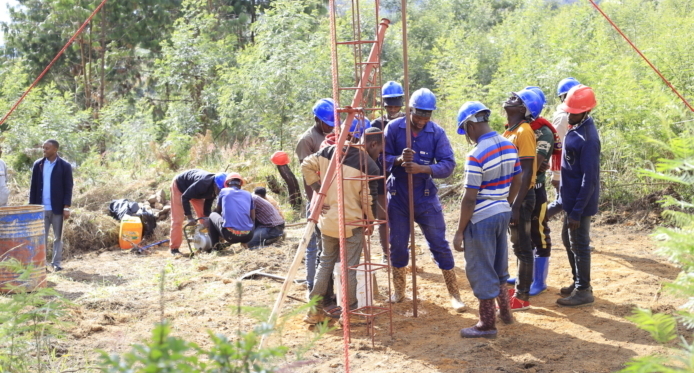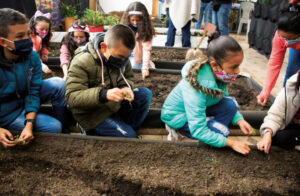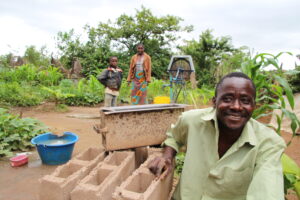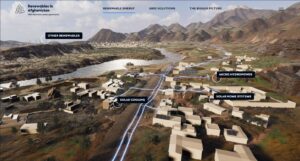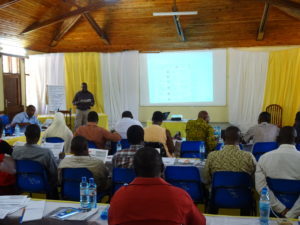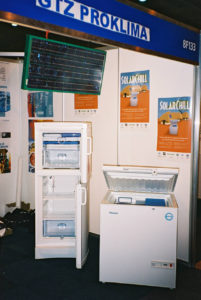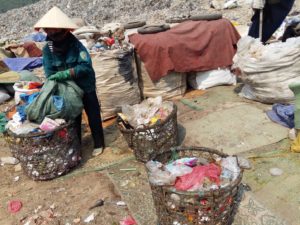Our Projects
Skat Foundation supports the creation of new knowledge and the application of existing knowledge in a new and creative way with the purpose of generating new concepts, methodologies and approaches in all its areas of expertise.
Safe Drinking Water – Nepal
© SmartPaani – Water filter sales event with a local women’s group in Lalitpur, Nepal.
Promoting Social Entrepreneurship for Safe Drinking Water in Lowlands of Nepal
Waste Management – Bolivia
©María B. Suárez & Beldandy Suárez – Project: Waste Separation in Indigenous Communities in Pando
Strengthening Municipal Capacities on Sustainable Solid Waste Management in Bolivia
1. Vocational Training on Solid Waste and Organic Management
2. Support to Youth Initiatives on Sustainable Waste Management
SMARTechs – Nicaragua
© Erick Gomez, Asociación Rayaka Laya
Strengthening local capacities for better access to water and sanitation services in the municipalities of Tipitapa (Nicaragua)
For more than ten years, Skat Foundation contributes to improving access to Water services in rural areas using the Simple Market-based Affordable and Repairable Technologies Centers – SMART Center approach. SMART Centers are networking hubs combining capacity building, demonstration, Research and Development, market intelligence and promotion of Technologies. Skat Foundation currently supports SMART Center in Nicaragua – Rayaka Laya Association.
Self-supply – Tanzania
©SHIPO, 2022
Sustainable access to clean drinking water in Tanzania
Since 2012 the Southern Highlands Participatory Organizations (SHIPO) and Skat Foundation have been strengthening market-based mechanisms of service provision for water to households in rural areas of the Southern Highlands in Tanzania. This approach focuses on delivering services for improved access to water by strengthening local entrepreneurs and artisans in the construction and maintenance of rural water points.
Green Terrace – Colombia
Practical courses to children on how to raise herbs and how to cultivate the family garden. Canedo (2022)
Green Terrace – Sustainable urban Agriculture and Composting in Usme, Bogota Colombia
Together with our local partners, Parroquia San Marcelino Champagnat, and the social programme PROSOFI Progamme of the Javeriana University, we are implementing the Green Terrace project (Terraza Verde in Spanish) on urganic urban agriculture and composting in Usme, Bogotá, Colombia.
The main objective of this project is to strengthen the capacities of communities in Usme, Bogota, to implement good practices in solid waste management. The project raises awareness of the value of separating organic waste to produce compost that can be used to produce vegetables and herbs. The project not only helps families to improve their food security, but it also helps to reduce the environmental impacts of organic waste disposed in the city’s sanitary landfill, and to strengthen the community social cohesion.
Clean Water for Zambia
Block making to install water pumps. Help to self-help: Clean Water for Zambia project (2021)
Help to self-help: Clean Water for Zambia
Zambia has 5 to 6 months of no rainfall per year which limits crop farmers’ productivity. This project promotes the notion of self-supply and the Simple Market-based Affordable Repair Technologies (SMARTech) to support local communities to have affordable and sustainable access to water.
Local entrepreneurs are carefully selected and trained to build and repair local water solutions. For example, welders are trained in the production of pumps and drilling equipment and well diggers are trained in manual drilling and installation of solar and hand pumps.
The solutions are produced locally and therefore are affordable and can be maintained locally. Users are encouraged to pay a small commitment fee for the operation and maintenance of the systems.
With this approach, the project creates a local market, where users buy pumps and boreholes direct from the welders and drillers even without support from NGOs or Government.
Renewable Energies Afghanistan
Interactive website created as part of the Renewable Energies in Afghanistan project (2022)
Digitalizing the Afghan Renewable Energy Sector, Afghanistan
Insufficient and unreliable energy supply at high costs is the reality for many people in the world, especially in rural areas and fragile contexts.
Skat Foundation developed and implemented a lighthouse project that builds on the capacities of stakeholders in Afghanistan using innovative digital tools with the aim to enabling new knowledge and practices on Renewable Energy in their local context.
The project was followed in two phases:
Phase 1: Development of five digital tools and a website (in three languages)
Phase 2: Online Trainer of Trainers Program of Renewable Energy Scouts.
WASHTech
Rolling out TAF
Technology Applicability Framework (TAF) and guidelines for Technology Introduction Processes (TIP)
Skat Foundation grew out of the appropriate technology movement of the 1970s that proposed an alternative to capital intensive technology exported from industrialised countries with little regard to the vastly social, economic or environment contexts that affect how beneficial – or harmful – technology can be.
Today, we still see that technology has an important role to play for helping those in poverty, improve their livelihoods and quality of life – but not in isolation. Developing or introducing new technologies to solve problems, such as water scarcity or climate change resilience, needs to be sensitive to the context in which that technology will be used.
Between 2011 and 2013, Skat Foundation was a member of an EU-funded research project, called WASHTech, and we led the development of the Technology Applicability Framework (TAF) for assessing the match between a given technology and the context in which it is to be used. We also developed guidelines for a Technology Introduction Process (TIP) because we recognised that many good ideas fall into the ‘valley of death’ and are not successful at scale.
The TAF has been used all over the world, from WaterAid assessing pour flush latrines in remote Nicaragua; to IRC reviewing solar pumps in rural South Sudan; to GIZ evaluating wastewater treatment in urban Kabul, Afghanistan. It provides an easy to use, participatory tool to help with the introduction of new technology or the evaluation of established technologies.
Skat Foundation maintains the dedicated washtechnologies.net website, and we provide technical advice on funding review panels, such as USAID’s Development Innovation Ventures.
SolarChill
SolarChill Development, Testing and Technology Transfer Outreach
Up to three billion people live in regions of the world with no electricity or without reliable electrical supply. In those regions maintaining a secure “cold chain” for the delivery of vaccination programs and preserving the safety and integrity of medicines is extremely challenging for improving health. Consequently, in many regions, vaccination programs and proper health care delivery are very weak or simply do not exist due to lack of reliable electricity. In regions without reliable electricity, millions of dollars worth vaccines are spoiled each year. These losses are set to increase with ever more expensive vaccines coming on the market.
The SolarChill Project aims to tangibly improve the quality of our environment and human health by delivering affordable, climate friendly, lead battery free, solar powered vaccine cooling and food and small commercial refrigeration to parts of the world that are without reliable electrical supply.
SolarChill thus bridges health, development and environmental issues. It is an iconic example of how humanity can embrace renewable energy. Moreover, SolarChill demonstrates that health, environment and poverty issues are inextricably interrelated and must be tackled together.
Waste Picker Cooperatives
Private Sector Service Vs Waste Picker Cooperatives – A Cost Comparison Analysis
A comparison of the formal and informal sectors in the six cities of six different countries by a GIZ study shows that the formal sector primarily works in service provision (collection and disposal) and does not achieve high recycling rates. This results in high operational costs, because the quantities recovered are small, and so even modest costs to collect these materials are not offset by revenues from selling them to the value chain. The informal sector, on the contrary, primarily works in recovery and recycling of valuable materials. Although operational costs are often higher than in the formal sector, the high revenues from materials result in a much lower cost per tonne, in most cases a net benefit.
But there are are several examples across the world in developing countries where also in the service provisions who provide similar or improved services in collection and recovery for processing. Such examples exist from Latin America to Asia and Africa. The research attempts to find what are the cost savings and why these are not widely replicated or gets upscaled.

